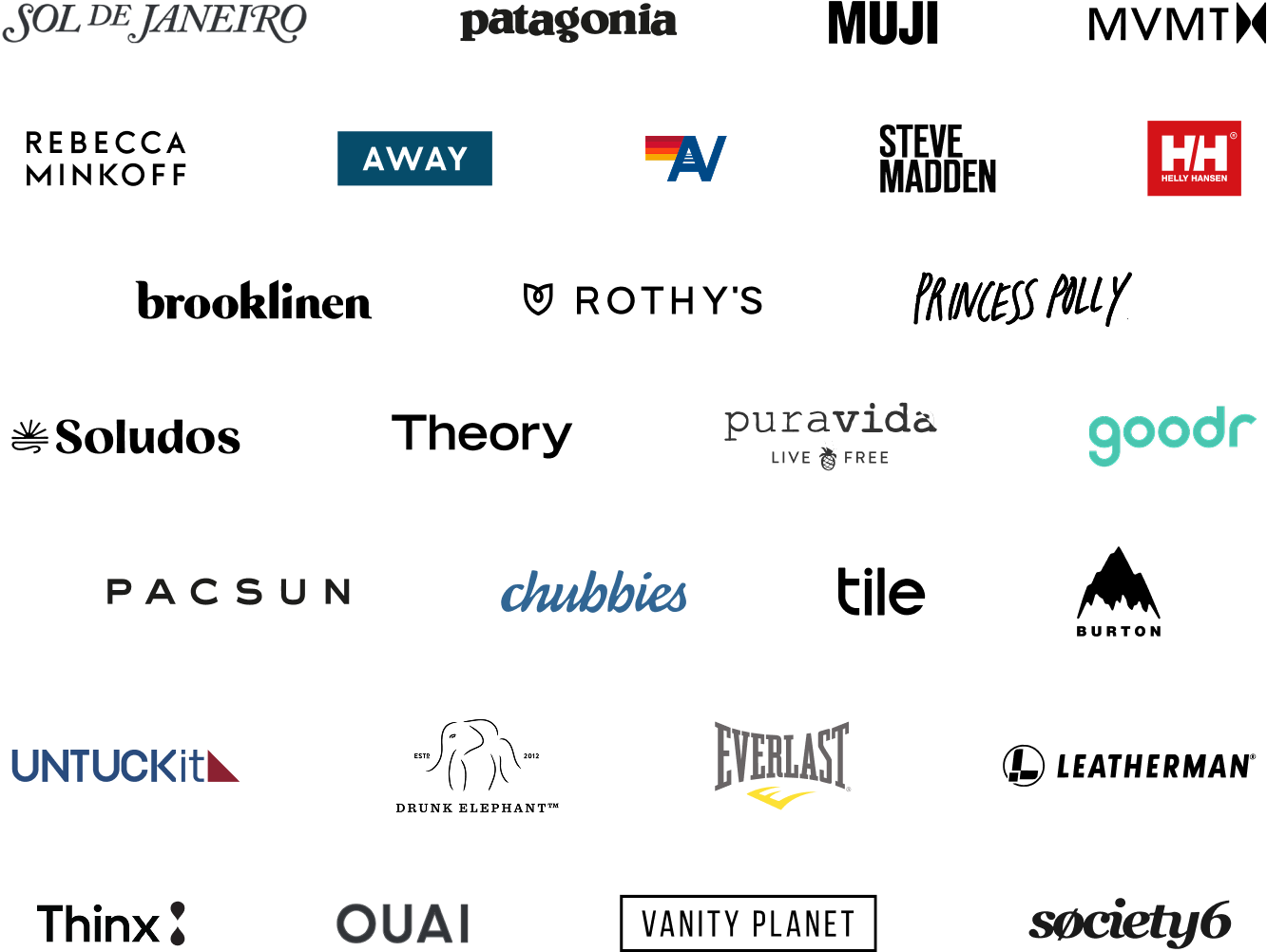Bridging the Offline-to-Online Gap
Online-first brands face unique challenges in earning consumer trust for products customers have never seen before. In this lesson, get creative solutions for showcasing products online.
 D2C Marketing Course
D2C Marketing Course
Online-first brands face unique challenges in earning consumer trust for products customers have never seen before. In this lesson, get creative solutions for showcasing products online.
Your information will be treated in accordance with our Privacy Policy
In this lesson, get creative solutions for showcasing products online.
Even with the growing click-to-brick trend, many direct-to-consumer businesses are still making their first moves online or are working to optimize their website. To create the ideal digital shopping experience, these brands need to design user journeys that captivate customers and build confidence.
We’ve learned that when most of your customers are Millennials, they don’t really have as much of a mental barrier to buying big-ticket items — even diamonds — online. It’s just a matter of getting the experience right, and using the most effective tools to make purchasing on your site easier and more accessible than other options.
Physical retail brands sometimes build their online presence with the legacy mentality that somebody walks into a store and you sell to them. But visitors come to your site to buy, not to be sold to.
You need to switch mentalities to support the buyer through discovery and conversion with the best possible user interface, user experience, and on-site customer service, rather than chase them down with product and discounts.

For example, visitors to our site immediately have the option to design their own rings or to browse recent customer designs. This gets them into exploring and discovery mode right off the bat, while adding social proof to the mix.
We also made 24/7 customer service a priority, by chat, phone, and email. Our customer service team includes gemologists who can answer super-specific questions with expert knowledge. This way, shoppers can move through common barriers to purchase at their own pace and convenience, getting the information they need when they need it.
To get the most out of this discovery-first setup, the holy grail for brands is really about finding a non-intrusive, customer-serving way to capture quality leads. You don’t want to offer some giveaway that gets you a million email addresses of people who have no interest in ever purchasing from your site.
Instead, it’s important to offer something that uniquely appeals to your target purchaser. For us, one method of doing this has been gating access to our SuperZoom tool that lets visitors view diamonds at an extreme close-up. If someone is that interested in a particular stone, they’re worth more than hundreds of people aiming to win free product.
In the jewelry industry, the purchasing period tends to be several months long, so we’ve created a journey of back-and-forth conversations and touchpoints. There’s a photo gallery of engagement moments, customer reviews, an education center, where visitors can learn about gemstones and diamonds, and even a ring sizing tool.
Shoppers are sent to particular resources based on their gender, how long they’ve been in our cycle, if they’ve bought before or haven’t, and then obviously behaviors on the site.
Depending on your vertical, you’ll have different interactive tools and resources to use, like fit quizzes, blog posts, customer photo galleries, product customization modules, etc. These also help you collect more information about shoppers so you can further personalize their journey.

By post-purchase, you want to have as much information as you can about your customers. Prospective customers can gain confidence in the brand from seeing thousands of couples and their happy stories, either through pictures in our engagement moments gallery or in reviews both on and offsite. Reviews are an increasingly important conversion tool.
Our whole approach to our site was built on transparency and our customers’ need to be able to see the product in enough detail to convince them to buy it.
For us, visualization tools — 360º HD videos at up to 40x magnification — have been essential. When you’re holding up a jeweler’s loupe, many people take a while just to learn how to look through it. You’ll get a close-up view, but nothing like the 360º videos at 40X super zoom that we offer on-site.
Look around at what your competition is doing to create transparency on-site and take it a step further. So it’s not necessarily always doing something new, but doing it better. For example, there were product videos in the jewelry space before, but not with super zoom.
Your information will be treated in accordance with our Privacy Policy

This will take just a moment…We're finding the right person on our team to help your brand!
“Yotpo is a fundamental part of our recommended tech stack.”
 Laura Doonin, Commercial Director
Laura Doonin, Commercial Director










 Join a free demo, personalized to fit your needs
Join a free demo, personalized to fit your needs